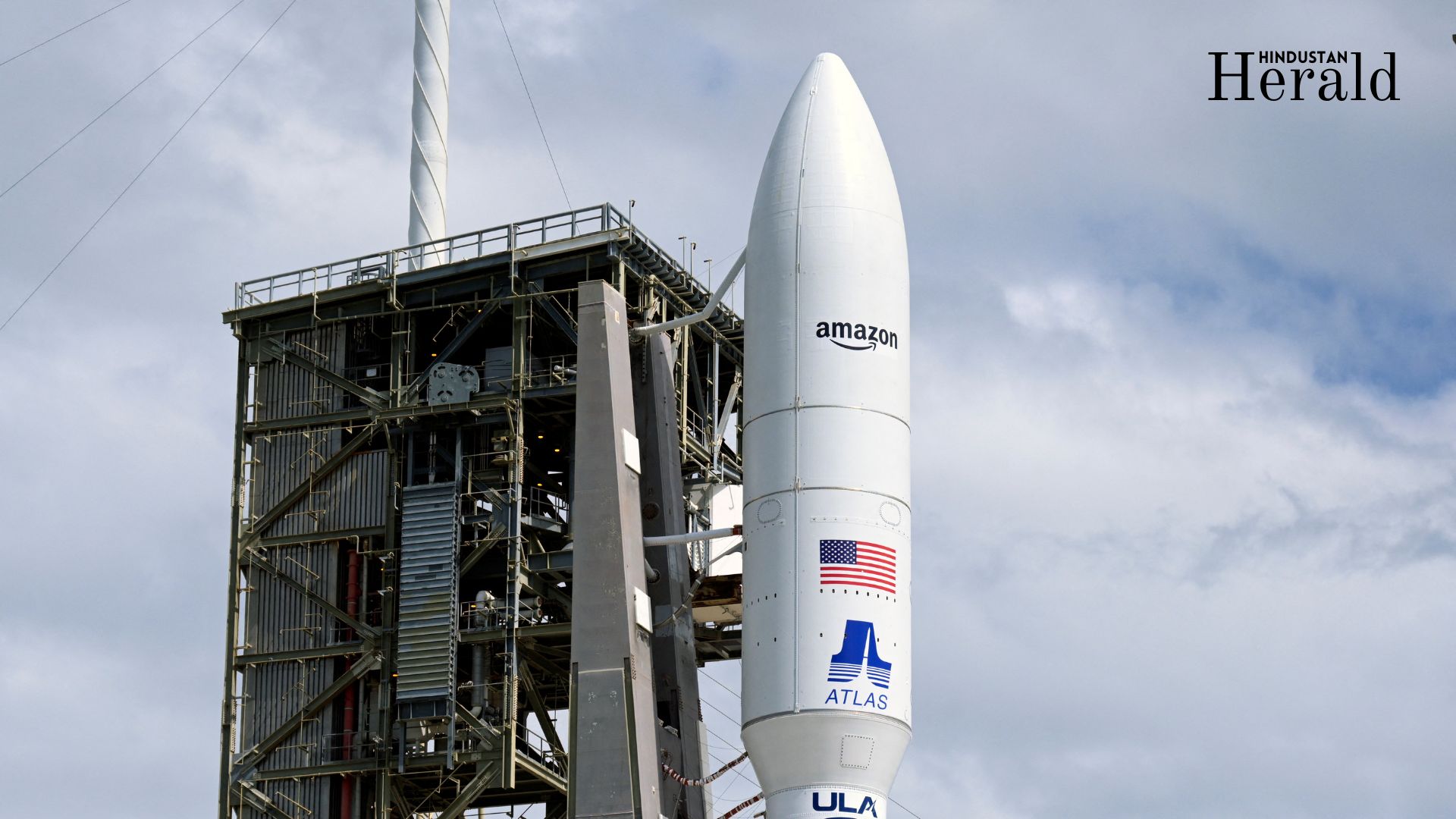Amazon’s Project Kuiper Satellite Launch Delayed by Bad Weather: What’s Next?

Key Highlights:
Cape Canaveral, April 10, 2025 — Amazon’s highly anticipated Project Kuiper satellite launch hit a snag on Wednesday night as adverse weather conditions forced United Launch Alliance (ULA) to scrub the mission. The launch, which was to carry 27 of Amazon’s first operational internet satellites aboard an Atlas V rocket, will be rescheduled pending improved weather.
Clouds Ground Kuiper Satellites at the Last Minute
The Atlas V rocket, stationed at Florida’s Cape Canaveral Space Force Station, was poised to lift off during a two-hour launch window starting at 7 p.m. EDT (2300 GMT). However, persistent cumulus cloud cover and rain within a 10-mile radius violated launch safety rules set by the U.S. Space Force.
“It is confirmed that we will not continue with the Amazon Project Kuiper 1 launch activities today,” said ULA commentator Caleb Weiss during a live broadcast. “We will work with our partners at the U.S. Space Force Space Launch Delta 45 for the timing of our next launch opportunity.”
ULA noted that while some minor technical glitches were addressed during the countdown, the main concern remained the weather.
What Is Project Kuiper?
Project Kuiper is Amazon’s ambitious response to SpaceX’s Starlink megaconstellation. The tech giant aims to deploy more than 3,200 broadband satellites in low-Earth orbit to deliver fast, reliable internet access to underserved regions across the globe.
Though still in its early stages, Project Kuiper represents Amazon’s push to secure a major presence in the rapidly expanding space-based internet market. The company successfully launched two prototype satellites in October 2023, validating its technology and laying the groundwork for Wednesday’s now-delayed operational mission.
Multiple Rockets, One Goal
While ULA is managing this specific launch, Amazon has diversified its deployment strategy with multiple launch providers. Upcoming Project Kuiper missions will be carried out using:
- ULA’s Vulcan Centaur rocket
- Arianespace’s Ariane 6
- Blue Origin’s New Glenn
- SpaceX’s Falcon 9 and Falcon Heavy
This multi-launcher approach is meant to accelerate satellite deployment and reduce dependency on any single provider.
What Happens Now?
With no new launch date yet announced, ULA and Amazon will collaborate with the U.S. Space Force to assess weather conditions and prepare for the next opportunity. Given Florida’s unpredictable spring weather, the timeline remains fluid.
However, the delay is unlikely to dent Amazon’s long-term goals. The tech giant remains committed to rolling out a large portion of its Kuiper constellation by mid-2026, as per regulatory deadlines imposed by the Federal Communications Commission (FCC).
Why It Matters
The Project Kuiper initiative is more than just a business venture—it’s a strategic bet on the future of global connectivity. As countries look to bridge the digital divide, Amazon’s constellation could play a vital role in bringing high-speed internet to remote regions.
But challenges remain. From regulatory hurdles to stiff competition from SpaceX and OneWeb, Amazon’s journey to space won’t be without turbulence.
Despite the launch delay, Amazon’s Project Kuiper remains on course to disrupt the global internet landscape. With more liftoffs planned and strategic partnerships in place, the tech giant is betting big on the final frontier.
The Hindustan Herald Is Your Source For The Latest In Business, Entertainment, Lifestyle, Breaking News, And Other News. Please Follow Us On Facebook, Instagram, Twitter, And LinkedIn To Receive Instantaneous Updates. Also Don’t Forget To Subscribe Our Telegram Channel @hindustanherald







